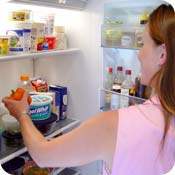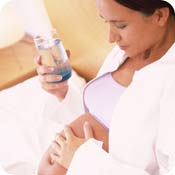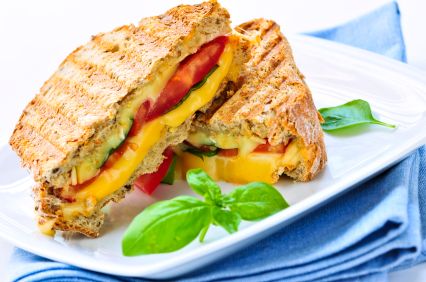 It's true that pregnant women shouldn't eat soft cheeses, but that doesn't mean that every soft dairy product is out of bounds for 40 weeks.
It's true that pregnant women shouldn't eat soft cheeses, but that doesn't mean that every soft dairy product is out of bounds for 40 weeks. Your morning bagel with cream cheese is a safe choice (just be sure to choose a low-fat variety), as is your yogurt smoothie. If you're craving cottage cheese and tomatoes, dig in. However, because of your pregnancy, you should probably avoid some other foods in your refrigerator. Pregnant women shouldn't eat soft cheeses that are unpasteurized, mold-ripened cheeses like Brie or Camembert, or blue-veined cheeses such as Stilton and Gorgonzola (the blue veins are mold). Unpasteurized (also called raw) cheeses can carry a harmful bacteria called listeria. Listeria is a type of bacteria found everywhere. Listeria can cause a food-borne illness called listeriosis, which is extremely dangerous for a pregnant women and her unborn baby. Listeriosis can cause premature delivery, miscarriage, and fetal death. A pregnant woman is more susceptible to Listeriosis because of the normal pregnancy changes that affect your immune system. Listeria are unusual because they can grow at refrigeration temperatures of 40 degrees or below. Only cooking kills them. Look for the term "pasteurized" on the label of any cheese you buy. Any cheese (including the soft cheeses mentioned in this article) that is pasteurized is safe to eat during pregnancy. If a label is not available, the cheese is made from unpasteurized milk, you are dining out, or you are traveling overseas, take these precautions. Follow these food safety tips:
Here's a list of common cheeses that are safe to eat while pregnant: |
Playing it Safe: Soft Cheeses
Cream Cheese is OK, But Some Others are Not
Page 1 of 1






Member Comments